CHICAGO — CHANGE Illinois was encouraged by discussions at the United States Supreme Court this morning on the landmark gerrymandering case out of Wisconsin, Gill v. Whitford. The plaintiffs arguing in favor of fair maps made a strong case and it was clear based on the questions asked by the Court that all the justices were seriously engaged.
If the Court establishes a new constitutional standard prohibiting partisan gerrymandering, this will apply nationwide and could be used to finally change Illinois’ seriously flawed redistricting process before new legislative maps are drawn after the 2020 census.
“The effects of gerrymandering have been harmful for Illinois and its residents. Gridlock is at an all-time high and governance is at a new low,” stated CHANGE Illinois spokesperson, Jeff Raines. “The selfish, personal interests of our politicians should never outweigh the voices of the voters or the needs of our state.”
CHANGE Illinois is optimistic about the High Court’s Spring decision and is committed to building momentum and public awareness to pressure the General Assembly to enact meaningful reform. Using the 2018 election cycle as a policy window, CHANGE Illinois pledges to get candidates and incumbents on-the-record about gerrymandering and their plans to pass reforms.
A recent poll found that 71 percent of Americans favor the Supreme Court setting new rules for gerrymandering. 62 percent stated they would be less likely to vote for someone that supported partisan gerrymandering.
Last October, a Paul Simon Institute poll showed similar overwhelming support here in Illinois for redistricting reform – with 72 percent of Illinoisans supporting an independent commission drawing Illinois’ district lines.
Recent elections results in Illinois have shown what gerrymandering has done to voter choice at the ballot box. In a study of Illinois’ 2014 elections, it was found that nearly 60 percent of state house seats were uncontested and even greater number of state senate seats – 63 percent.
That same study found that, on average over the past four decades, 88 percent of Illinois voters (in 104 of 118 House races, 52 of 59 Senate races) had no choice at all on the ballot or a choice between a sure winner and a sure loser.
Illinois’ current redistricting process is done by a bipartisan legislative committee of four Republicans and four Democrats chosen by leaders of both parties. When voting for which legislative maps to enact, in the event of a tie – which has been the case the last three times – an additional Democratic or Republican tiebreaker commissioner is chosen by drawing a single name out of a replica of Abraham Lincoln’s hat.
